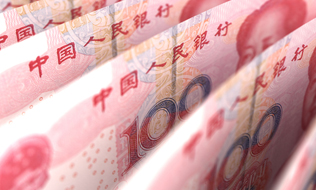

The Canada Pension Plan Investment Board has invested US$375 million in a Chinese private investment vehicle.
Owned by CapitaLand, Raffles City China Investment Partners III will focus on commercial real estate developments in gateway cities in China. CPPIB’s investment represents a 25 per cent ownership of the company.
“Investing in CapitaLand’s new China investment vehicle gives CPPIB the opportunity to expand on our long-term strategy of investing in high-quality commercial real estate in China to deliver solid risk-adjusted returns over the long term,” Jimmy Phua, CPPIB’s managing director and head of real estate investments in Asia, said in a release.
Last week, CPPIB announced a 49 per cent stake in a shopping mall in Chongqing, China.
Read: CPPIB invests $193M in Chinese shopping centre
It’s a good idea for pension funds to invest in Chinese real estate right now, according to Derek Warren, assistant vice-president at Lincluden Investment Management Ltd. in Mississauga, Ont.
“This is unique for pension funds where they can go in, have a very long-term view [of at least 25 years], start small and work through the pressures that a new market opens up,” he says.
Other institutional investors may not have the same opportunity because of significantly shorter time horizons, says Warren, pointing to Taubman Centers, a U.S. shopping mall operator facing pressure from investors because of poor returns from its Chinese malls.
Read: Global real estate remains attractive
Difficulties in pricing can also affect real estate investments in China, Warren says. Instead of determining property prices based on what they could currently sell for, investors must price them off cash flow.
“That’s OK, but it’s in a currency that’s a managed currency,” he says. “There has to be provisions to expatriate the funds. Otherwise you’re just reinvesting. And that’s okay if all funds are just reinvested back into the property, but once again that only works if you can increase the value, and the value is determined by an exit.
“If there’s no exit, it becomes a circle. You really have to be having an extremely long-term view or having some sort of arrangement where you can the cash out.”
Read: E-commerce among growing investment opportunities in China
